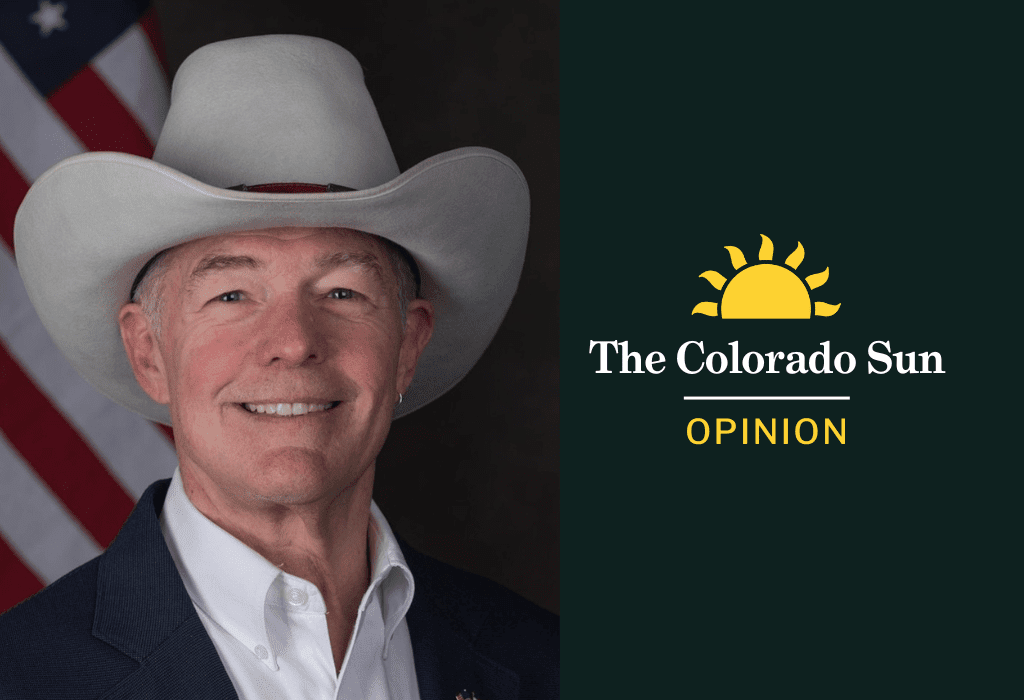Two years after it was signed into law, the Inflation Reduction Act, or IRA, is proving to be a historic game changer for rural Colorado’s energy economy. If you had told me five years ago Colorado’s second largest power provider, Tri-State Generation and Transmission, would be awarded $2.5 billion in federal grants and loans to help cut energy costs and accelerate its move to clean energy, I would not have believed you.
In September, we learned the utility would be awarded $679 million in direct funds through the USDA’s New ERA grant program. Then, on Oct. 25, we learned that those funds would be stretched to a total of $2.5 billion to Tri-State via the program’s low- and zero-interest loans. These resources will have a tremendous impact on Tri-State’s ability to retire burdensome debt, close coal plants and become a true leader in rural America’s renewable energy future.
In 2019, Tri-State was still clinging to coal as the main source of its power generation. In the five years since, it has transformed itself into a clean energy leader among cooperative utilities nationally, with rural communities in Colorado benefiting tremendously from the tax base, jobs and healthier environment that new clean energy projects will bring.
I’m wrapping up eight years as a Chaffee County commissioner. Throughout my tenure, energy affordability and climate change have been leading concerns for constituents and for me as a public servant. I remember when I first sent a letter to Tri-State, shortly after a damning report showing that Tri-State could save ratepayers $600 million by transitioning from coal to cheaper, cleaner energy, urging its board to do just that.
Utility-reported data at the time showed that member co-ops served by Tri-State, such as our own Sangre de Cristo Electric Association, were saddled with some of the highest electricity costs in the state, at a time when rural communities were also dealing with wildfires, flooding, reduced snowpack, unreliable growing seasons, drought and other climate change challenges — all related to fossil fuel combustion.
It was clear that something had to give, but at the time, Tri-State still had plans to continue its coal-driven future. Leaders from our communities looked to the Colorado Legislature for help. That year, the General Assembly passed Senate Bill 236 requiring Tri-State to have its long-term energy plans approved by the Public Utilities Commission (PUC) — no different than Colorado’s other large utilities.
The law was the first in the nation for generation and transmission companies, or G&Ts, and a welcomed change that put rural Colorado on a path to cleaner, more affordable energy.
The following year, in response to continued pressure and in anticipation of PUC scrutiny, Tri-State announced it would close half of its coal plants and promised 70% renewable energy by 2030. Although a positive step, here in Chaffee County we knew it wasn’t enough to meet Colorado’s carbon emission reduction targets. Much more was needed.
So, along with 13 other cities, towns and counties in Tri-State territory, we passed a resolution urging the legislature and PUC to require that Tri-State reduce carbon emissions in line with state climate goals and other utilities. Finally, in 2022, after two years of proceedings before the PUC, Tri-State signed a settlement agreement committing to reduce its emissions 80% by 2030.
We all knew the road to clean energy for Tri-State would be difficult because of its precarious financial circumstances. Like many G&Ts that provide power to rural electric cooperatives, Tri-State is burdened with billions of dollars of debt from its coal plants and doesn’t have the same access to financing for new clean energy infrastructure that investor-owned utilities like Xcel Energy do.
That’s where the Inflation Reduction Act comes in. Tri-State joined rural clean energy advocates to lobby for federal funding to help G&Ts and co-ops replace old coal plants with new clean energy across rural America. I was proud to be one of many local elected officials who pushed our congressional delegation to get the IRA across the finish line with funding for rural clean energy transition.
As a result of these efforts and its bold planning, Tri-State has been awarded more funding from the Empowering Rural America program, or New ERA, for clean energy than any other G&T or co-op nationally. It would be great to see Tri-State use these resources to stay focused on renewable energy, not more fossil fuels like gas plants. This is the best case scenario for our long-held dream of moving Tri-State off fossil fuels and keeping rates affordable to rural Coloradans.
Thanks to the IRA, Tri-State now has the resources to overcome the hurdles of coal debt and lack of up-front capital needed to retire old coal units and replace them with wind, solar and battery storage projects that will be built across its service territory. If Tri-State can deliver on its promises, our climate, energy bills and local economies in rural Colorado will be better for it.
Keith Baker of Buena Vista is a Chaffee County commissioner, first elected in 2016, and is a former Buena Vista town trustee, retired Navy commander and businessman.
The Colorado Sun is a nonpartisan news organization, and the opinions of columnists and editorial writers do not reflect the opinions of the newsroom. Read our ethics policy for more on The Sun’s opinion policy. Learn how to submit a column. Reach the opinion editor at opinion@coloradosun.com.
Follow Colorado Sun Opinion on Facebook.
Type of Story: Opinion
Advocates for ideas and draws conclusions based on the author/producer’s interpretation of facts and data.
Source link : http://www.bing.com/news/apiclick.aspx?ref=FexRss&aid=&tid=6729e6ee25794e14bf95e3f654d91094&url=https%3A%2F%2Fcoloradosun.com%2F2024%2F11%2F05%2Fopinion-colorado-tri-state-ira-funding-rural-communities%2F&c=543473386489847459&mkt=en-us
Author :
Publish date : 2024-11-04 20:12:00
Copyright for syndicated content belongs to the linked Source.
